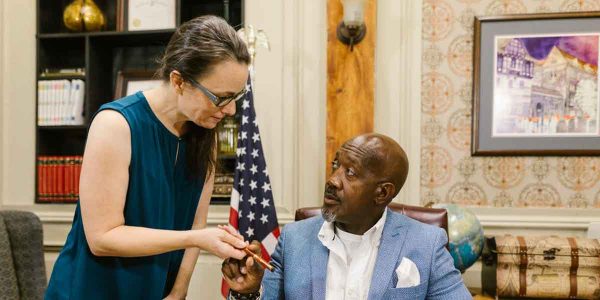Probate begins soon after you lose your loved one. However, probate is a legal proceeding that validates a will to settle an estate. So, let us discuss what a probate attorney does. First, there is the involvement of trust and choice.
Who is a Probate Attorney?
To settle an estate, the beneficiaries of the estate or the Executor of the Will may need the assistance of a state-licensed attorney known as a probate attorney. Their service may range from locating and cataloging the estate’s assets to comprehending and satisfying any debts the estate may owe to distributing and settling the estate, among other services.
Even though they frequently charge a high price for the fundamentals like establishing guardianship, drafting a Will, or writing a Trust, probate attorneys have prepared to assist with the estate planning.
What is a Trust?
The court accomplishes the distribution of a deceased person’s property by the terms of their will through the legal process of probate, which initiates when someone dies. The court determines the will’s legality through a protracted and expensive process called probate.
One of the essential advantages of a revocable trust is that this isn’t the case for trusts. According to the grantor’s objective, trusts are distinct legal entities to manage and distribute assets.
Revocable trust beneficiaries do not pass their assets through probate along with the assets listed in the trust. This is because the assets listed in faith aren’t the deceased person’s property. In other words, a trust’s assets, which might include money, stocks, bonds, property, a car, jewelry, works of art, and other tangible possessions, are not subject to the will’s control.
What does a probate attorney do when there is the involvement of trust and will?
Most people believe they are exempt from creating a will because they have trust. That is untrue. You should have a choice if you make a living trust, even a revocable one. Under the trust, only assets you give to the trustee for management will be kept. However, they don’t precisely comprise all of your possessions.
Wills can also address matters that your trust cannot, like guardianship of your minor children, directions for the care of any pets you may own, and other instructions after your death. You can also include how you want your funeral.
Role of a Probate Lawyer
The probate lawyer will often start by proving the will to ensure it is legal if the decedent left a will. Then, to ensure the document is correct, the Attorney will examine it. However, the court can invalid rule if:
- The testator (the person who made the will) did not sign it in line with state rules, establishing criteria for witnesses.
- When preparing the will, the testator had limited mental capacity.
- Duress forced the testator to submit to another’s will.
- There was dishonesty.
You might wish to look for a probate attorney who focuses on legal actions involving a deceased person’s estate if a will is challenged. These people are referred to as estate litigators or probate litigators.
Conclusion
Wills frequently must go through the lengthy and expensive probate process. Making trust is one approach to prevent this. However, remember that trusts often do not contain all of your assets. In particular, if you acquire assets after the creation of trusts. By creating a will, you can specify instructions for the custody of your minor children and pets.
Although having a will is always a good idea, you might consider setting up a trust. A probate lawyer aids in efficiently carrying out each task. They also complete tasks on time to hasten the probate process. They provide impartiality, justice, and sobriety to a process that would otherwise be tainted and disrupted by animosity between beneficiaries.












